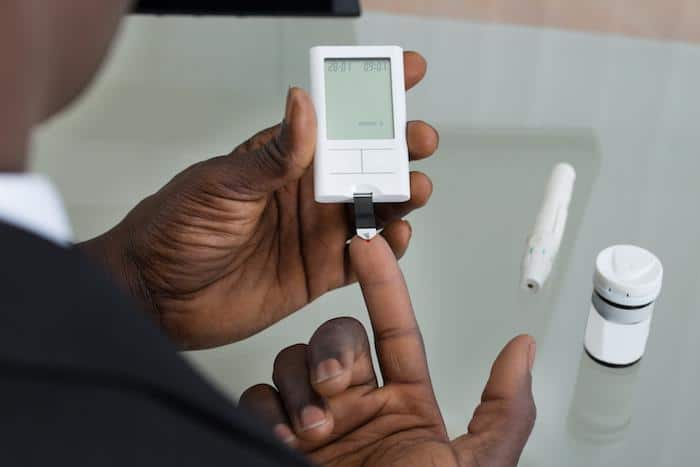We’ve all heard the stories about a loved one or neighbor needing a leg amputation or having serious issues with their eyesight, all due to diabetes.
If you’re among the estimated 34.2 million Americans who have been diagnosed with diabetes, you’re all too familiar with the fact that the health complications associated with this disease are very real, as you live with them every moment of every day.
The statistics are quite sobering. Diabetics are twice as likely as the general population to develop glaucoma and cataracts and 25 times more likely to suffer from blindness. Remarkably, every day 230 Americans with diabetes will have to undergo an amputation.
As overwhelming as these statistics are, and as dangerous as diabetes can be, just because you have diabetes doesn’t mean you inevitably will become a diabetes statistic. Instead you can become your own best advocate by learning to adjust to life with diabetes, says the skilled team of health professionals at Formé Medical Center in White Plains, New York.
In this blog, we’ll unpack some key things you can do to stave off the possible health complications from diabetes so that you can live a full, productive life.
What is diabetes?
A good place to start this conversation is to explain what diabetes is and how it impacts the healthy operation of your body. Diabetes is fairly common in the United States, so much so that every 17 seconds an American is diagnosed with the condition. The natural tendency can be to assume that just because something is so common, it can’t possibly be serious, so there’s no need to worry about it.
Not so.
Diabetes affects the healthy operation of every system throughout your body — literally from head to toe. It’s all about a hormone called insulin and blood sugar, or glucose. Insulin and glucose work together to make sure cells throughout your body receive energy to maintain healthy operation.
But when you have diabetes, either your pancreas doesn’t produce enough insulin to do its job, or insulin production is sufficient but your cells don’t react as they should. In either case, you end up with too much glucose in your blood.
Over time these high glucose levels can affect systems and organs throughout your body, including your blood vessels and nerves, as well as your eyes, heart, and kidneys.
Keep your blood sugar under control
The best way you can adjust to life with diabetes is to take your diagnosis seriously, and work with your health care team to get your glucose levels under control and keep them that way. Here at Formé Medical Center, we know that managing diabetes can be complicated, often involving a variety of medical disciplines.
We simplify things for our diabetic patients by taking a holistic approach with all services under one roof. Our team of highly skilled health providers includes cardiologists who manage heart and blood vessel health and podiatrists that provide diabetic foot care.
You don’t have to go it alone. We’ll provide the medical and health care services and support that will keep you on track.
Eat healthy
How you live becomes a major focus for adjusting to your diabetes diagnosis. Lifestyle decisions like what you eat and your activity level will greatly impact your ability to manage your diabetes.
Eating well-balanced meals is important for diabetics and non-diabetics alike. However, when you have diabetes, watching your carbohydrates is crucial, since they impact glucose levels quicker than protein or fat.
Stay active
Similarly, getting consistent exercise and staying active will not only help you manage a healthy weight, but also help your body use insulin more efficiently. Lifestyle changes aren’t easy. Start from where you are and celebrate the small victories along the way.
If you have diabetes and want to know more about adjusting to life with your condition, contact Formé Medical Center for comprehensive diabetes care. To schedule an appointment, call our office or request an appointment online today.







